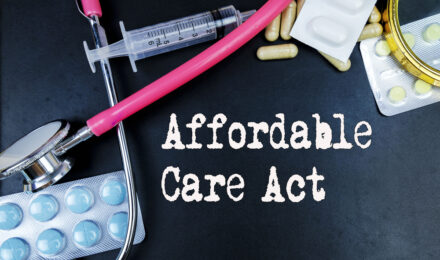Contents
- 1 What Is Preventive Care?
- 2 Key Components of Preventive Care
- 3 Benefits
- 4 Insurance Coverage for Proactive Healthcare
- 5 Making the Most of Proactive Healthcare
- 6 Barriers to Preventive Care and Solutions
- 7 The Role of Lifestyle in Preventive Care
- 8 Special Considerations for Different Age Groups
- 9 Conclusion
- 10 Resources and Additional Information
Preventive care represents one of the most effective approaches to maintaining long-term health and reducing healthcare costs. By identifying and addressing health issues before they become serious, proactive healthcare helps individuals live longer, healthier lives while minimizing the need for more expensive treatments later. According to the Centers for Disease Control and Prevention (CDC), chronic diseases that could be prevented through proper care account for 75% of the nation’s healthcare spending.
What Is Preventive Care?
Preventive care encompasses medical services that protect against or identify potential health problems before they develop into serious conditions. These services include regular check-ups, screenings, immunizations, and counseling designed to prevent illnesses, diseases, and other health issues from occurring or worsening.
Key Components of Preventive Care
Regular Health Screenings
- Blood Pressure Monitoring: Regular checks to prevent cardiovascular disease
- Cholesterol Screening: Identifying risk factors for heart disease
- Cancer Screenings: Including mammograms, colonoscopies, and skin cancer checks
- Diabetes Screening: Blood sugar tests to detect pre-diabetes and diabetes
- Vision and Hearing Tests: Regular checks to monitor sensory health
Immunizations
According to the U.S. Department of Health and Human Services (HHS), recommended vaccinations include:
- Annual flu shots
- Tetanus boosters every 10 years
- Shingles vaccine for adults over 50
- Pneumonia vaccine for older adults
- COVID-19 vaccines and boosters as recommended
- Childhood immunization schedule
Wellness Visits
- Annual physical examinations
- Dental cleanings and check-ups every six months
- Eye examinations
- Women’s wellness visits
- Mental health screenings
Benefits
1. Early Detection and Treatment
Preventive care allows healthcare providers to identify potential health issues early when they’re typically:
- More treatable
- Less expensive to address
- Less likely to cause long-term complications
2. Cost Savings
The National Institute of Health reports that proactive healthcare can significantly reduce healthcare costs:
- Lower emergency room visits
- Reduced hospitalization rates
- Decreased need for expensive treatments
- Better management of chronic conditions
3. Improved Health Outcomes
Regular health care leads to:
- Better understanding of personal health risks
- Improved quality of life
- Longer life expectancy
- Enhanced mental and physical well-being
4. Disease Prevention
Preventive services help prevent or minimize the impact of:
- Heart disease
- Diabetes
- Various cancers
- Respiratory diseases
- Mental health conditions
Insurance Coverage for Proactive Healthcare
Under the Affordable Care Act (ACA), most health insurance plans must cover a wide range of preventive services without charging a copayment or coinsurance, even if you haven’t met your yearly deductible. These services include:
- For Adults:
- Blood pressure screening
- Cholesterol screening
- Depression screening
- Diet counseling
- Various cancer screenings
- For Women:
- Breast cancer mammography
- Cervical cancer screening
- Osteoporosis screening
- Prenatal care
- Well-woman visits
- For Children:
- Autism screening
- Developmental assessments
- Vision screening
- Behavioral assessments
- Immunizations
Making the Most of Proactive Healthcare
Tips for Engaging in Preventive Maintenance
- Schedule Regular Check-ups
- Don’t wait until you’re sick
- Keep a consistent schedule
- Follow recommended screening guidelines
- Maintain Records
- Track your health visits
- Keep immunization records
- Document test results and screenings
- Communicate with Healthcare Providers
- Share family health history
- Discuss lifestyle factors
- Ask about recommended screenings
- Stay Informed
- Learn about age-appropriate screenings
- Understand your risk factors
- Keep up with new preventive healthcare guidelines
Barriers to Preventive Care and Solutions
Common Barriers
- Time Constraints
- Solution: Schedule appointments well in advance
- Consider telehealth options when appropriate
- Cost Concerns
- Solution: Understand insurance coverage
- Explore community health resources
- Ask about payment plans
- Access to Healthcare
- Solution: Research local clinics
- Consider mobile health services
- Utilize community health events
The Role of Lifestyle in Preventive Care
Preventive care extends beyond medical visits to include lifestyle choices:
- Healthy Diet
- Balanced nutrition
- Appropriate portion sizes
- Regular meal schedule
- Regular Exercise
- 150 minutes of moderate activity weekly
- Strength training
- Flexibility exercises
- Mental Health Management
- Stress reduction techniques
- Regular sleep schedule
- Work-life balance
Special Considerations for Different Age Groups
Children and Adolescents
- Regular developmental screenings
- Immunizations on schedule
- Dental and vision checks
- Mental health monitoring
Adults (18-39)
- Annual physicals
- Sexual health screenings
- Mental health assessments
- Lifestyle counseling
Middle-Aged Adults (40-64)
- Cancer screenings
- Cardiovascular assessments
- Bone density monitoring
- Diabetes screening
Seniors (65+)
- Fall risk assessments
- Cognitive function screening
- Regular medication reviews
- Increased frequency of health monitoring
Conclusion
Preventive care represents a crucial investment in long-term health and well-being. By taking a proactive approach to healthcare through regular screenings, immunizations, and healthy lifestyle choices, individuals can significantly improve their health outcomes while reducing healthcare costs. Understanding and utilizing available preventive services, particularly those covered by insurance, can help ensure a healthier future for individuals and families alike.
Remember that preventive care is not one-size-fits-all; consult with healthcare providers to develop a preventive care plan tailored to your specific needs, age, risk factors, and family history.
Resources and Additional Information
For more detailed information about preventive care and coverage, consult these authoritative sources:
- Centers for Disease Control and Prevention (CDC) – “Preventive Healthcare” https://www.cdc.gov/prevention/
- U.S. Preventive Services Task Force (USPSTF) – “Recommendations for Primary Care Practice”https://www.uspreventiveservicestaskforce.org/uspstf/recommendation-topics
- National Institutes of Health (NIH) – “Prevention” https://www.nih.gov/health-information/prevention
Contents
- 1 What Is Preventive Care?
- 2 Key Components of Preventive Care
- 3 Benefits
- 4 Insurance Coverage for Proactive Healthcare
- 5 Making the Most of Proactive Healthcare
- 6 Barriers to Preventive Care and Solutions
- 7 The Role of Lifestyle in Preventive Care
- 8 Special Considerations for Different Age Groups
- 9 Conclusion
- 10 Resources and Additional Information
Preventive care represents one of the most effective approaches to maintaining long-term health and reducing healthcare costs. By identifying and addressing health issues before they become serious, proactive healthcare helps individuals live longer, healthier lives while minimizing the need for more expensive treatments later. According to the Centers for Disease Control and Prevention (CDC), chronic diseases that could be prevented through proper care account for 75% of the nation’s healthcare spending.
What Is Preventive Care?
Preventive care encompasses medical services that protect against or identify potential health problems before they develop into serious conditions. These services include regular check-ups, screenings, immunizations, and counseling designed to prevent illnesses, diseases, and other health issues from occurring or worsening.
Key Components of Preventive Care
Regular Health Screenings
- Blood Pressure Monitoring: Regular checks to prevent cardiovascular disease
- Cholesterol Screening: Identifying risk factors for heart disease
- Cancer Screenings: Including mammograms, colonoscopies, and skin cancer checks
- Diabetes Screening: Blood sugar tests to detect pre-diabetes and diabetes
- Vision and Hearing Tests: Regular checks to monitor sensory health
Immunizations
According to the U.S. Department of Health and Human Services (HHS), recommended vaccinations include:
- Annual flu shots
- Tetanus boosters every 10 years
- Shingles vaccine for adults over 50
- Pneumonia vaccine for older adults
- COVID-19 vaccines and boosters as recommended
- Childhood immunization schedule
Wellness Visits
- Annual physical examinations
- Dental cleanings and check-ups every six months
- Eye examinations
- Women’s wellness visits
- Mental health screenings
Benefits
1. Early Detection and Treatment
Preventive care allows healthcare providers to identify potential health issues early when they’re typically:
- More treatable
- Less expensive to address
- Less likely to cause long-term complications
2. Cost Savings
The National Institute of Health reports that proactive healthcare can significantly reduce healthcare costs:
- Lower emergency room visits
- Reduced hospitalization rates
- Decreased need for expensive treatments
- Better management of chronic conditions
3. Improved Health Outcomes
Regular health care leads to:
- Better understanding of personal health risks
- Improved quality of life
- Longer life expectancy
- Enhanced mental and physical well-being
4. Disease Prevention
Preventive services help prevent or minimize the impact of:
- Heart disease
- Diabetes
- Various cancers
- Respiratory diseases
- Mental health conditions
Insurance Coverage for Proactive Healthcare
Under the Affordable Care Act (ACA), most health insurance plans must cover a wide range of preventive services without charging a copayment or coinsurance, even if you haven’t met your yearly deductible. These services include:
- For Adults:
- Blood pressure screening
- Cholesterol screening
- Depression screening
- Diet counseling
- Various cancer screenings
- For Women:
- Breast cancer mammography
- Cervical cancer screening
- Osteoporosis screening
- Prenatal care
- Well-woman visits
- For Children:
- Autism screening
- Developmental assessments
- Vision screening
- Behavioral assessments
- Immunizations
Making the Most of Proactive Healthcare
Tips for Engaging in Preventive Maintenance
- Schedule Regular Check-ups
- Don’t wait until you’re sick
- Keep a consistent schedule
- Follow recommended screening guidelines
- Maintain Records
- Track your health visits
- Keep immunization records
- Document test results and screenings
- Communicate with Healthcare Providers
- Share family health history
- Discuss lifestyle factors
- Ask about recommended screenings
- Stay Informed
- Learn about age-appropriate screenings
- Understand your risk factors
- Keep up with new preventive healthcare guidelines
Barriers to Preventive Care and Solutions
Common Barriers
- Time Constraints
- Solution: Schedule appointments well in advance
- Consider telehealth options when appropriate
- Cost Concerns
- Solution: Understand insurance coverage
- Explore community health resources
- Ask about payment plans
- Access to Healthcare
- Solution: Research local clinics
- Consider mobile health services
- Utilize community health events
The Role of Lifestyle in Preventive Care
Preventive care extends beyond medical visits to include lifestyle choices:
- Healthy Diet
- Balanced nutrition
- Appropriate portion sizes
- Regular meal schedule
- Regular Exercise
- 150 minutes of moderate activity weekly
- Strength training
- Flexibility exercises
- Mental Health Management
- Stress reduction techniques
- Regular sleep schedule
- Work-life balance
Special Considerations for Different Age Groups
Children and Adolescents
- Regular developmental screenings
- Immunizations on schedule
- Dental and vision checks
- Mental health monitoring
Adults (18-39)
- Annual physicals
- Sexual health screenings
- Mental health assessments
- Lifestyle counseling
Middle-Aged Adults (40-64)
- Cancer screenings
- Cardiovascular assessments
- Bone density monitoring
- Diabetes screening
Seniors (65+)
- Fall risk assessments
- Cognitive function screening
- Regular medication reviews
- Increased frequency of health monitoring
Conclusion
Preventive care represents a crucial investment in long-term health and well-being. By taking a proactive approach to healthcare through regular screenings, immunizations, and healthy lifestyle choices, individuals can significantly improve their health outcomes while reducing healthcare costs. Understanding and utilizing available preventive services, particularly those covered by insurance, can help ensure a healthier future for individuals and families alike.
Remember that preventive care is not one-size-fits-all; consult with healthcare providers to develop a preventive care plan tailored to your specific needs, age, risk factors, and family history.
Resources and Additional Information
For more detailed information about preventive care and coverage, consult these authoritative sources:
- Centers for Disease Control and Prevention (CDC) – “Preventive Healthcare” https://www.cdc.gov/prevention/
- U.S. Preventive Services Task Force (USPSTF) – “Recommendations for Primary Care Practice”https://www.uspreventiveservicestaskforce.org/uspstf/recommendation-topics
- National Institutes of Health (NIH) – “Prevention” https://www.nih.gov/health-information/prevention






